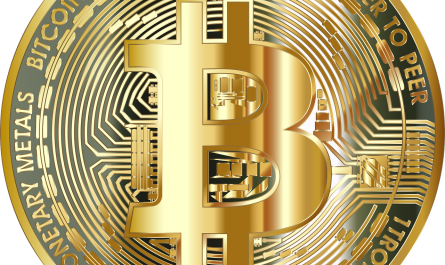Introduction
In today’s rapidly evolving financial landscape, exchanges play a crucial role in facilitating the buying and selling of financial instruments such as stocks, bonds, commodities, and derivatives. Exchanges act as marketplaces where buyers and sellers come together to execute trades, ensuring liquidity and price discovery. However, with the advent of technological advancements, traditional exchanges are facing disruptions that will shape the future of this industry. If you’re new to crypto trading and want a reliable and effortless trading experience, you may consider investing in a reliable trading platform like AI trading software.
Traditional Exchanges
Traditional exchanges have long been the backbone of financial markets, providing a centralized platform for trading activities. These exchanges offer essential functions such as order matching, trade execution, and clearing and settlement services. However, they face numerous challenges in the face of technological progress.
One of the key challenges for traditional exchanges is their slow adoption of technology. Many exchanges still rely on outdated manual processes, leading to inefficiencies and delays. Additionally, traditional exchanges often struggle to keep up with the demands of high-frequency trading, where speed and efficiency are paramount.
Technological Advancements in Exchanges
Technological advancements have given rise to new forms of exchanges that leverage electronic trading platforms, high-frequency trading algorithms, blockchain technology, and artificial intelligence (AI). These innovations have the potential to transform the way exchanges operate and revolutionize the financial industry.
Electronic trading platforms have emerged as a viable alternative to traditional exchanges. These platforms enable traders to execute orders electronically, eliminating the need for physical trading floors. Electronic trading offers benefits such as increased speed, lower costs, and improved transparency.
Another significant advancement is the introduction of high-frequency trading (HFT). HFT involves the use of powerful computers and algorithms to execute trades at lightning-fast speeds. HFT has revolutionized market liquidity and provided opportunities for arbitrage and market-making strategies.
Blockchain technology has also made its mark on the exchange industry through the development of decentralized exchanges (DEX). DEX allows users to trade digital assets directly without the need for intermediaries. Blockchain’s decentralized nature ensures transparency, security, and immutability of transactions, potentially reducing the risk of fraud and manipulation.
Furthermore, artificial intelligence (AI) and machine learning are being applied to trading algorithms, enhancing market analysis, prediction, and decision-making processes. AI-powered trading systems can analyze vast amounts of data in real-time, identify patterns, and execute trades with precision.
Market Disruption by Technological Advancements
The technological advancements in exchanges are disrupting the traditional financial landscape in several ways.
Firstly, these advancements have significantly increased the efficiency and transparency of trading. Electronic trading platforms and high-frequency trading have reduced the time it takes to execute trades and improved price discovery. Market participants can access real-time market data and execute trades with minimal delays.
Secondly, technological advancements have led to reduced costs and fees associated with trading. Electronic trading platforms have eliminated the need for intermediaries, reducing transaction costs and making trading more accessible to individual investors. Additionally, high-frequency trading has introduced competition among market participants, leading to narrower bid-ask spreads and lower trading costs.
Furthermore, these advancements have enabled global accessibility and democratization of trading. With electronic platforms and decentralized exchanges, investors from all over the world can participate in markets previously inaccessible to them. This globalization of trading opportunities has created a more inclusive and diverse market ecosystem.
However, along with the benefits come potential risks. The disintermediation caused by technological advancements may lead to disintermediation risks, where traditional financial institutions and intermediaries face challenges to their business models. The rise of decentralized exchanges and digital assets challenges the role of banks, brokers, and other intermediaries, potentially altering the dynamics of the financial industry.
Regulatory challenges also arise in the face of these technological advancements. Regulators need to address concerns regarding market manipulation, cybersecurity, investor protection, and the regulatory framework for digital assets. Striking the right balance between innovation and regulation is crucial to ensure the stability and integrity of financial markets.
Looking ahead, the future of exchanges will continue to be shaped by technological advancements. We can expect further developments in areas such as decentralized finance (DeFi), tokenization of assets, and the integration of AI and machine learning in trading systems.
Conclusion
In conclusion, the future of exchanges is undergoing significant transformation due to technological advancements. Traditional exchanges are being challenged by electronic trading platforms, high-frequency trading, blockchain technology, and AI. These advancements bring increased efficiency, reduced costs, global accessibility, and democratization of trading. However, regulatory challenges and potential risks need to be addressed to ensure the stability and integrity of financial markets. As we move forward, exchanges will continue to evolve, embracing innovation and shaping the way we trade and invest.


